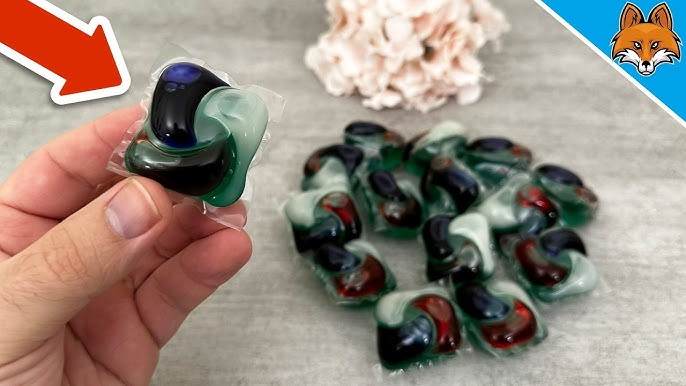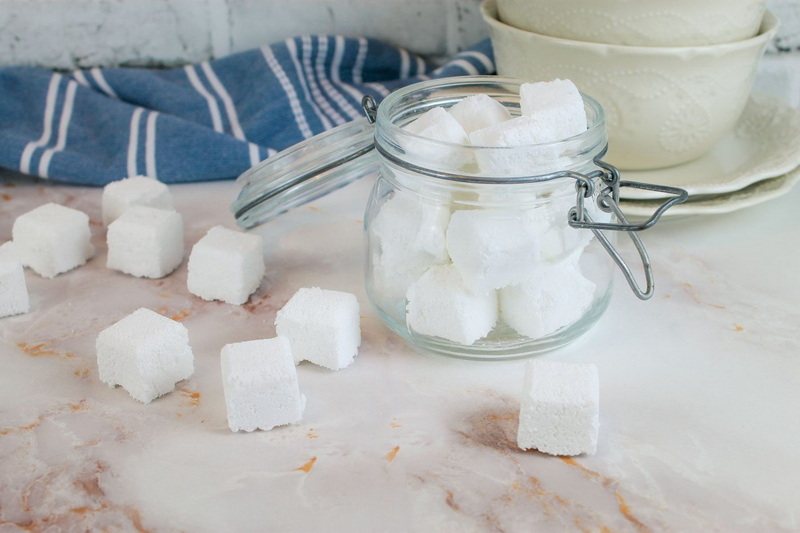Dongguan UFine Daily Chemical Co.,Ltd.
- All
- Product Name
- Product Keyword
- Product Model
- Product Summary
- Product Description
- Multi Field Search
Views: 222 Author: Tomorrow Publish Time: 11-02-2025 Origin: Site











Content Menu
● Initial containment and removal
● Dissolving and lifting the residue
● Stain evaluation and color restoration
● Preventive measures and maintenance tips
● Care considerations for different wood finish types
● Troubleshooting common issues
● When to seek professional help
● Step-by-step quick-reference checklist
● Additional tips for difficult situations
● Long-term care and maintenance plan
● A note on safety and environment
● FAQ
>> 1. What should I do first if a laundry pod spills on a wood floor?
>> 2. Can I use vinegar to clean a laundry pod spill on wood floors?
>> 3. How do I remove staining left by a laundry pod on wood floors?
>> 4. Is it safe to use water-based cleaners on all wood floors?
>> 5. When should I call a professional for a laundry pod spill on wood floors?
Accidents happen, and a single laundry pod spilled on a wood floor can create a quick moment of stress. Commercial laundry pods, often housed in waterproof, jelly-like capsules, can leak their contents when crushed. If you find a pod stuck to a wooden surface, the goal is to remove the residue without damaging the finish or the grain. This guide provides a practical, step-by-step approach to safely remove a laundry pod and clean up any staining or residue on wood floors. It covers common scenarios, from a fresh spill to a pod that has dried or left a greasy film. By following these steps, you can restore the floor's appearance and prevent any long-term damage or slipperiness.

- Before you begin, ensure the area is safe to work in. Wear gloves to protect your skin from potential irritation from cleaning agents.
- Check the floor type and finish. Most domestic wood floors are sealed; however, some unfinished or damaged finishes may require extra care.
- If there is any color staining or a strong chemical odor, ventilate the room and consider moving nearby furniture to a dry, clean area.
- If children or pets are present, cordon off the area to prevent accidental contact with cleaning agents or wet flooring.
- Act quickly if the pod is still intact. Gently lift the pod away from the floor using a blunt tool or gloved finger and place it in a sealed bag to prevent further leakage.
- If the pod content has already leaked, do not rub it into the wood. Instead, blot or lift the solid pieces with a paper towel or plastic scraper, working from the outside edges toward the center to avoid spreading.
- For a fresh spill of the liquid contents, blot the area with a clean, dry cloth to absorb as much as possible. Avoid pressing hard, which can push the liquid deeper into the finish.
- If the pod has left sticky residue, avoid using harsh solvents that can damage finishes. Start with the mildest method and escalate only if necessary.
- Mix a mild cleaning solution. A common choice is a small amount of dish soap in warm water. For waxy or oily residues, add a drop or two of white vinegar, but test on a small inconspicuous area first.
- Dampen a soft microfiber cloth or sponge with the cleaning solution. Wring it out well so it is damp, not dripping.
- Gently wipe the affected area in a sweeping motion, following the wood grain. Do not saturate the wood; excessive moisture can cause swelling or warping.
- For stubborn residues, you can use a small amount of mineral oil or a wood-safe cleaner designed for sealed floors. Apply sparingly and wipe off immediately.
- If the pod left a glossy film, consider applying a solvent specifically labeled safe for wood floor finishes, such as a mineral spirit-based cleaner, but only after confirming compatibility with your finish. Use sparingly and ensure good ventilation.
- After the residue is removed, inspect the finish. A light haze or slight discoloration may occur if the rinse water was damp or if the pod contained color dyes.
- If there is a faint residue, repeat the cleaning steps with a slightly stronger cleaner formulated for wood floors, ensuring it is safe for your finish.
- For minor color staining, you can use a wood floor polish or finish restorer that matches your floor type. Apply according to product instructions and buff with a clean cloth.
- For more persistent staining, tests on a hidden area can guide whether a touch-up stain or color-matching repair is needed. Use a small amount of matching stain and finish to minimize visible differences.
- Allow the floor to air-dry completely. Open windows or run a fan to speed up drying, especially in humid environments.
- Once dry, assess the floor's gloss and finish. If the finish looks dull in the cleaned area, consider applying a compatible wood floor polish or wax as directed by the finish manufacturer.
- To prevent future incidents, consider placing a protective mat or rug in high-traffic areas where pods are used or stored.
- After cleaning, run a dry microfiber cloth over the area to remove any residual dust created by the cleaning process.
- Store laundry pods in a cool, dry place away from areas where spills are likely to occur. Use a sealed container to contain any leakage.
- Clean up any spills immediately to minimize absorption into the wood finish.
- Use plant-based or fragrance-free cleaning products to minimize residue that could attract dirt or cause discoloration on wood floors.
- Regularly sweep and mop with a cleaner recommended for sealed wood floors to maintain the finish and reduce the risk of staining from household products.
- For households with pets or high traffic, consider a more frequent re-sealing or refinishing schedule to maintain a robust barrier against spills.
- Polyurethane or aluminum oxide finishes: Usually forgiving of routine cleaning. Use a gentle cleaner and avoid harsh chemicals that could wear the topcoat.
- Waxed or oiled floors: These finishes require specialized cleaners. Avoid soaking the wood. Reapply wax or oil as needed after cleaning to maintain the protective layer.
- Laminate or vinyl-wood composites: If the floor is not real wood, follow the manufacturer's guidelines. Many laminates are more sensitive to moisture and require quick-drying cleaning methods.
- Unfinished or porous wood: If the floor is unfinished, moisture can stain and warp quickly. Use minimal moisture and consider sealing or finishing after the area is completely clean and dry.

- Issue: Residue persists after cleaning. Solution: Repeat the cleaning steps with a slightly stronger, wood-safe cleaner and ensure the area is not overly saturated with moisture.
- Issue: Finishing appears dulled or hazy. Solution: Use a wood floor polish or restorer compatible with your finish. Apply sparingly and buff to restore shine.
- Issue: Stains or dyes have set into the grain. Solution: A professional wood refinish may be needed for deeper staining, particularly on lighter woods where color differences are noticeable.
- Issue: Wood shows minor swelling after cleaning. Solution: Allow additional drying time and reduce moisture exposure. If swelling persists, consult a professional to assess finish integrity.
- If the spill has penetrated deep into the wood or if the floor's finish has been scratched or peeled away.
- If you notice warping, cupping, or swelling around the affected area after cleaning.
- If you are unsure about the finish type or the appropriate product to use.
- If the stain is extensive or the area is large, professional refinishing may be the most cost-effective long-term solution.
- Contain and lift the pod, or blot up any liquid immediately.
- Use a mild, wood-safe cleaner with minimal moisture.
- Gently wipe along the grain; avoid saturating the wood.
- Address any haze or discoloration with appropriate polish or restorer.
- Dry thoroughly and protect the area with mats or rugs.
- Consider preventive measures for future spills.
- If a strong dye is present, you might need a color-m retaining cleaner or a color-safe wood cleaner. Always patch-test first.
- For older finishes, non-abrasive methods are preferable; avoid scouring pads that can scratch the surface.
- If you suspect chemical interactions (such as a pod chemical reacting with wax or oil finishes), switch to a dedicated wood-safe refinisher in a small inconspicuous area first.
- Establish a routine cleaning schedule using products compatible with your floor's finish.
- Periodically inspect the finish for wear and reapply protective coatings as recommended by the manufacturer.
- Use felt pads under furniture in common spill-prone zones to reduce potential injury and moisture trapping.
- Maintain humidity levels to minimize wood movement, ideally between 30% and 50%.
- Ventilate the room while cleaning, especially if using cleaners with volatile organic compounds.
- Dispose of used rags and papers according to local regulations, as some solvents can be flammable.
- Choose environmentally friendly, wood-safe cleaners when possible to protect indoor air quality and floor longevity.
Removing a laundry pod from a wood floor requires careful handling to protect the finish and prevent moisture damage. Start by containing and lifting the pod, then clean with mild, wood-safe solutions while avoiding excess moisture. Evaluate the finish after cleaning, address any discoloration with appropriate products, and ensure the area dries completely. By following these steps, you can restore the floor's appearance and maintain its longevity. With preventive measures and proper maintenance, spills can be managed quickly, minimizing damage and preserving the beauty of wood flooring for years to come.

Answer: Contain the spill, remove the pod if possible, blot up any liquid, and start with a mild cleaning solution to lift residues without saturating the wood.
Answer: Yes, a small amount of white vinegar can help dissolve residue, but test it on an inconspicuous area first to ensure it does not affect the finish.
Answer: Use a mild wood-safe cleaner, repeat as needed, and consider a wood floor polish or restorer if the color remains faintly different from the surrounding area.
Answer: Most sealed wood floors tolerate water-based cleaners, but always follow the floor manufacturer's recommendations and avoid saturating the wood.
Answer: If there is deep staining, finish damage, warping, or uncertainty about the floor type and appropriate products, professional assessment is advisable.
The Ultimate Guide to Using Laundry Pods Effectively: Insights from a Leading OEM Manufacturer
Why Global Brands Now Prefer Laundry Pods – Insights From Our OEM Factory in China
Why Laundry Pods Do Not Dissolve (And How To Fix It Every Time)
Why Homemade Laundry Soap Is Bad in 2026 (And What Smart Laundry Brands Should Use Instead)
8 Best Smelling Laundry Detergents in 2026 (Expert Guide + OEM Insights)
8 Best Detergents for Black Clothes in 2026 (Expert Guide + OEM Insights)